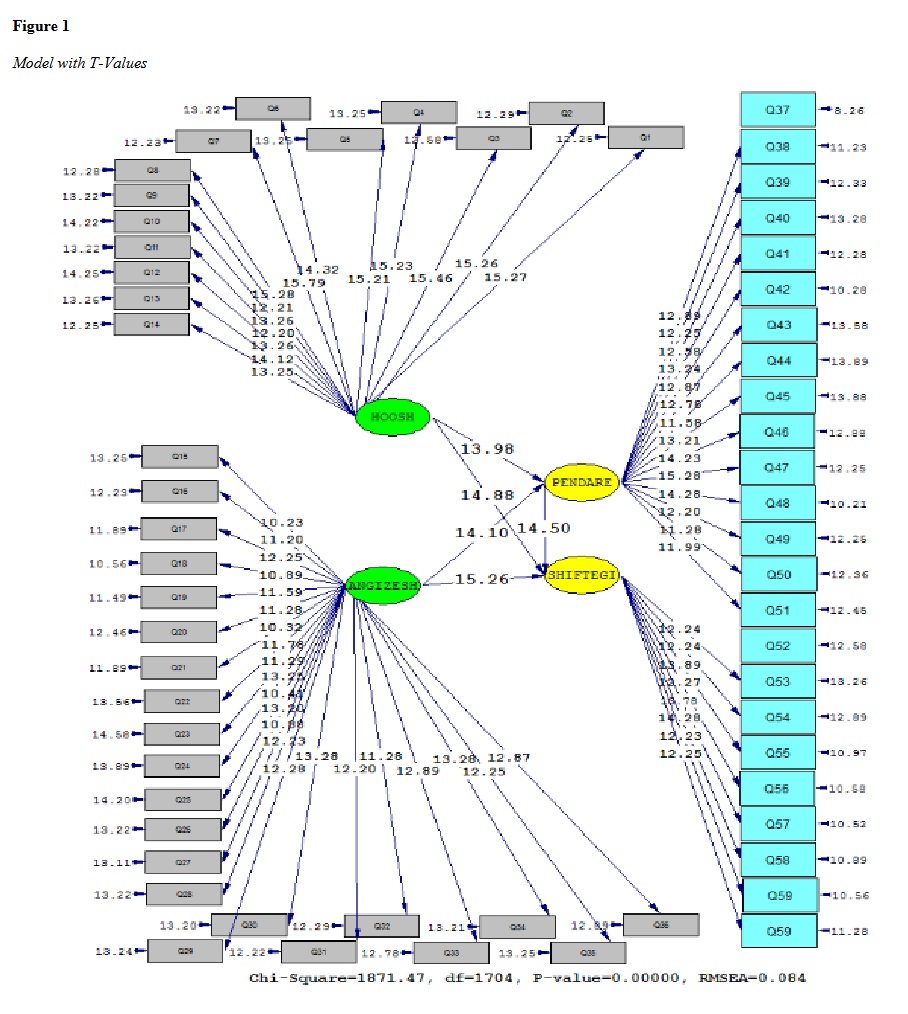The Impact of Intellectual and Motivational Beliefs on Academic Engagement Mediated by Academic Self-Concept
Keywords:
Intellectual beliefs, Motivational beliefs, Academic engagement, Academic self-conceptAbstract
Objective: The objective of this research was to investigate the impact of intellectual and motivational beliefs on academic engagement mediated by academic self-concept.
Methods and Materials: The population of this study consisted of 2,500 female high school students in Hamadan. Based on Cochran's formula and the estimated population variance, the sample size was estimated at 300 participants. The sampling method used was multi-stage cluster sampling. The current research method was applied in terms of objective, and descriptive-correlational and survey in terms of nature and data collection methods. Data were collected through both library studies to examine literature and research background and field studies to achieve the research objective. For measuring intellectual beliefs, the questionnaire by Abdel-Fattah and Yates (2006) was used; for motivational beliefs, the questionnaire by Pintrich and De Groot (1999); for academic self-concept, the questionnaire by Yessen Chen (2004); and for academic engagement, the questionnaire by Martin and Jackson (2005) was utilized. The data from the questionnaires were analyzed using SPSS 25 and LISREL 8.8 software.
Findings: The findings indicated that intellectual beliefs had a significant positive impact on academic engagement; motivational beliefs also had a significant positive impact on academic engagement; academic self-concept, in turn, positively affected academic engagement.
Conclusion: Ultimately, the results demonstrated that academic self-concept mediated the impact of intellectual beliefs on academic engagement as well as the impact of motivational beliefs on academic engagement.
Downloads

Downloads
Additional Files
Published
Issue
Section
License
Copyright (c) 2024 Soraya Vahid (Author); Ahmad Ali Jadidian (Corresponding Author); Davood Jafari (Author)

This work is licensed under a Creative Commons Attribution-NonCommercial 4.0 International License.














